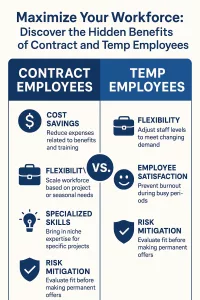Interviewing can be a nerve-wracking experience for anyone, regardless of how prepared you are or how many interviews you’ve aced in the past. The pressure to perform well, present yourself positively, and effectively communicate your qualifications can lead to feelings of anxiety that may hinder your performance. However, with the right strategies, you can master interview anxiety and walk into that room with confidence and composure. Here are some effective techniques to help you tackle those nerves head-on.
Understanding Interview Anxiety
Before we dive into strategies, it’s essential to understand what interview anxiety is. It’s not merely about feeling nervous; it’s a combination of anticipation and fear, often fueled by concerns over judgment and evaluation. Many people experience this anxiety in varying degrees, which is absolutely normal. Recognizing that you’re not alone can be a comforting first step. The key is to turn that anxiety into a positive force that boosts your performance rather than hinders it.
Preparation: Your Best Defense
One of the most effective ways to minimize interview anxiety is through thorough preparation. Familiarize yourself with the company, its culture, and the role you’re applying for. Research common interview questions and practice your answers out loud. This not only helps you articulate your thoughts but also instills a sense of confidence. Consider conducting mock interviews with friends or family members to simulate the experience in a low-pressure environment. The more you prepare, the less anxious you’ll feel when it’s time for the real deal.
Mindfulness and Breathing Techniques
When anxiety strikes, it can manifest physically—your heart races, palms sweat, and thoughts begin to swirl. Mindfulness and breathing exercises can ground you and calm your nerves. Before your interview, take a few moments to focus on your breath. Inhale deeply for four counts, hold for four counts, and exhale for four counts. Repeat this several times, allowing your body to relax. Visualization techniques can also be effective; picture yourself succeeding in the interview, confidently answering questions and engaging with the interviewer. These practices can shift your mindset from one of anxiety to one of empowerment.
The Power of Positive Affirmations
Your internal dialogue plays a significant role in how you feel about yourself and your abilities. Negative self-talk can exacerbate anxiety, leading you to doubt your qualifications or worthiness. Instead, replace those negative thoughts with positive affirmations. Phrases like “I am prepared,” “I have valuable skills to offer,” and “I will handle whatever questions come my way” can help build your self-confidence. Repeat these affirmations daily leading up to your interview, and remind yourself of your accomplishments and strengths.
Choosing the Right Attire
Your choice of attire can significantly impact your confidence levels. Wearing an outfit that makes you feel professional and comfortable can boost your self-esteem and ease anxiety. Choose clothing that fits well and resonates with the company culture—whether it’s business formal or business casual. On the day of the interview, wear something that not only looks good but also feels good, allowing you to focus more on the conversation and less on adjusting your collar or tugging at your cuffs. Here’s a link to “Dress for Success” a website recognized for giving great advice. Additionally, consider preparing your outfit a day in advance to avoid the last-minute scramble that often leads to additional stress. When you feel good about your appearance, it reflects in your demeanor and attitude during the interview.
Practice Active Listening
During an interview, the pressure to perform can often lead candidates to focus on their own responses rather than truly listening to the interviewer. Practicing active listening can ease some of this pressure. Remember that interviews are a two-way conversation; they want to see how you fit into their team just as much as you want to know if they’re a fit for you.
Focus on what the interviewer is saying, nod in understanding, and ask clarifying questions if needed. This not only demonstrates your interest in the position but also takes the spotlight off you momentarily, which can alleviate anxiety. Plus, being engaged and responsive can help create a stronger connection with the interviewer, making the entire experience feel more collaborative and less intimidating.
Handling Unexpected Questions Gracefully
Let’s face it: no matter how much you prepare, unexpected questions can pop up during an interview. Instead of letting these curveballs rattle yAou, view them as opportunities to showcase your problem-solving skills. If you encounter a question that catches you off guard, take a deep breath and pause for a moment to collect your thoughts. It’s perfectly acceptable to ask for clarification or to take a moment to think before responding. This shows that you’re thoughtful and composed under pressure—an invaluable trait in any employee.
Post-Interview Reflection and Growth
Once the interview is over, take a moment to reflect on the experience. Rather than dwelling on what you could have done better, focus on what went well and what you learned from the process. Each interview, whether successful or not, is an opportunity for growth. Consider jotting down notes about the questions asked and your responses to help you improve for future interviews. This practice can also serve as a confidence booster, reminding you of your progress over time.
Finally, remember that everyone faces challenges in interviews; it’s part of the process. Resilience is built through these experiences, and mastering interview anxiety takes time and patience. By employing these strategies, you will find yourself walking into your next interview with greater composure and confidence, ready to impress.
In conclusion, mastering interview anxiety involves a combination of preparation, mindfulness, and proactive self-talk. By embracing these strategies, you can transform your nerves into an energized, focused mindset that empowers you to rise to the occasion. So go ahead, conquer that interview, and show them the confident individual you truly are!
At Dunhill Staffing Systems, based in historic South Carolina, we’ve giving interview tips for decades. Want some help…go here.







